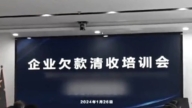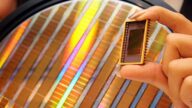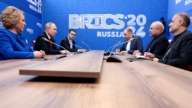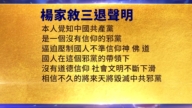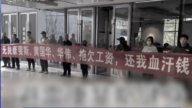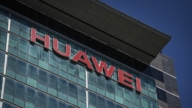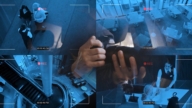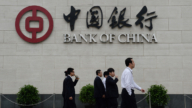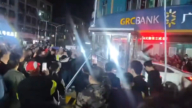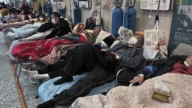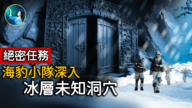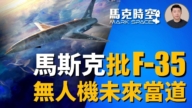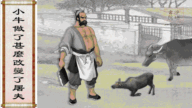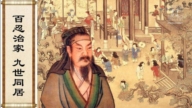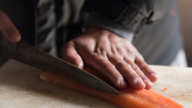【新唐人2011年11月23日讯】中共贪官不仅屡禁不绝,行贿受贿的花式也日新月异。房子、车子、票子,虽然依然是官场行贿三大件,但近年来,所谓“优雅式贿赂”也正逐渐兴起。“风险更小,收益更大”的名师字画,已成为当下中共官场最为流行、也是最保险的权钱勾兑新宠。
由于字画的价格浮动大,不出事的时候能保值增值,出了事又可以把它说成不值一文,这样一来,赤裸裸的金钱交易就被遮蔽在貌似文人雅趣的珠帘中,适应了中共贪官们的贿赂新需求。
《南方周末》11月17号报导,大陆艺术市场研究者牟建平指出,中国世画家名气最大的一号人物–范曾,他的画五成以上都是别人买来送礼,八年来一共卖出 4.5亿元,每平方尺的价格高达24万元。当有人问为什么这么贵时,范曾回答:“内靠贪官,外靠土匪。”
据大陆媒体公开报导,浙江海宁原副市长马继国、杭州市原副市长许迈永、河北沧州原市委书记薄绍铨等落马官员都藏有范曾的书画。其中,许迈永除了范曾的画,还有齐白石、启功、沙孟海等的字画。许迈永的收藏室被称为“小型书画博物馆”。
而曾轰动全国的沈阳“慕马案”,在十多名工作人员进入沈阳市原市长慕绥新家后,整整清理了三天才理出头绪,一次就整理出各类古董字画和工艺品赃物近400件。
大陆艺术批评家栗宪庭不久前曾公开撰文炮轰,水墨画已经变成中共官商勾结洗钱的主要途径。
现任国际书协主席的刘正成表示,每写完一幅书法都会被买字的人要求合影,因为买字的都是为了送礼,要向别人证明这些都是真迹。
刘正成还说,买字者要求他写最多的是两类字,除了古今名人名句外,还有和所谓反腐倡廉、和谐社会相关的,如“宁静致远”、“惠风和畅”﹔当然也有人要求在末尾写上某某官的名字。
报导披露,几年前,喜欢字画似乎还只是部分沿海官员的专利,但如今,这股风气已经蔓延到内陆。
这其中也有“另类”的中共贪官,宁夏自治区原副主席李堂堂本人不收藏字画,由情妇陈某收藏,但全部通过李堂堂之手“高价”卖出。
不过,大陆诗人和文化评论家叶匡政认为,用字画行贿是属于一种泡沫式的行贿。
叶匡政:“我们经常看见拍卖市场会出现天价,这种天价大多数属于自我炒作。我个人认为很多画家的画是不具有什么升值空间的,价值也非常低。”
对于收受贿赂的官员而言,字画是可以随时变现的通货,至于真假似乎并不重要。
已被判死刑的重庆前司法局局长文强,收藏的张大千“青绿山水”画,曾被重庆物价部门鉴定为364万元,后又被国家文物局指为赝品图。如果不是因为东窗事发,这幅赝品图,或许正等待下一位送礼者做局高价买下。
大陆诗人和文化评论家叶匡政:“中国有个统计数据表明,就是目前拍卖市场流通的中国名家书画有70%都是赝品和伪作。”
而贪官们除了收藏字画外,还生财有道。
据披露,有些贪官为把不太值钱的收藏字画增值,同时将黑钱洗白,会联手行贿者和拍卖行做局。而拍卖行因为可从拍卖双方抽佣12%,所以明知是行贿也会参与做局。
大陆诗人和文化评论家叶匡政:“一幅非常简单的画,实际上这幅画市场价上只值10万或20万,但是他花100万 或200万买下来,这就等于一种变相的行贿。另外一种就是用国内比较有名气的画家的画来行贿。”
业内人士指出,中国大小拍卖公司众多,堪称世界之最,有很多拍卖一看就是洗钱,而一些私企大老板甚至直接开拍卖行,以方便行贿送礼。
新唐人记者刘惠、王子琦、王明宇采访报导。
Chinese Corrupt Officials’ New Favor: Calligraphy and Painting
The Chinese Communist Party’s (CCP) regime said
it is against corruption,
but there’s an increasing number of corrupt officials,
and more and more corrupt methods in China now.
Before, the top three bribes were houses, cars, and money.
In recent years, so-called “elegant style bribery” is on the rise.
Famous artists’ calligraphy and paintings are the most popular
and safe bribery within CCP’s officialdom now because of its
low risk and high benefit.
The price of calligraphy and paintings has uncertainty,
it’s very expensive when its owner is in power,
and can be said worthless when its owner is charged
with corruption.
The money transactions between CCP’s officials can be
hidden behind those kinds of literary elegance.
This character meets the requirement of CCP’s corrupt
officials.
“Southern Weekend” reported on November 17th that
Mu Jianping, a researcher in the China art market pointed out
that Fan Zeng is No.1 of China’s living painters.
50% of his paintings were bought as gifts.
His paintings were sold for 450 million RMB in the past 8 years,
which unit price is as high as 240 thousand per square foot.
When others asked Fan Zeng why his painting is so expensive,
he answered: “It relies on corrupt officials internally, and relies on bandits externally.”
According to Chinese media’s report, many sacked officials
have Fan Zeng’s paintings including Ma Jiguo,
former vice mayor of Haining city Zhejiang province;
Xu Maiyong, former vice mayor of Hangzhou city;
Bo Shaoquan, former CCP’s secretary of Cangzhou city
Hebei province.
Among them, Xu Maiyong also has
calligraphies and paintings of Qi Baishi, Qi Gong, Sha Menghai, etc.
His collection room was called “mini calligraphy and
painting museum.”
In the famous “Muma Case” in Shenyang city,
it took a dozen staff members 3 days to check the house of
Mu Suixin, the former Shenyang mayor.
They found nearly 400 antique paintings and crafts.
Li Xianting, art critic in mainland China, published an article
criticizing the CCP’s officials and businessmen collusion and money laundering via Chinese Ink Painting.
Liu Zhengcheng, chairman of International Calligraphers, said
he was asked to take a photo with his calligraphy and the buyer
because the buyer will use the calligraphy as a gift and
need to testify its authenticity.
Liu Zhengcheng said most buyers require 2 kinds of
calligraphy, one is famous ancient poems, the other is related
to anti-corruption and a harmonious society which likes
“Quiet brings deep thought,” “Soft wind makes people comfortable.”
There’s also some buyers who
want to mark officials names in calligraphy.
Reports revealed that a few years ago, painting was favored
by officials in coastal provinces, but now this trend has spread to the interior provinces as well.
Among them, there’s some special corrupt officials.
For example,Li Tangtang, former vice chairman of Ningxia
Hui autonomous region, didn’t collect paintings,
but his mistress Chen did, and he helped her to sell paintings for a very high price.
Ye Kuangzheng, poet and cultural critic in mainland China,
thinks painting and calligraphy bribery is a bubble-like bribery.
Ye Kuangzheng: “We often see an ultra high price in
auction market.
This kind of price is mostly like a self-promotion.
I think most of the paintings don’t have a value rising space,
and they are low value stuff.”
But for the corrupt officials, paintings can be converted into
cash regardless of whether it’s fake or not.
Wen Qiang, former director of Chongqing bureau of justice,
was sentenced to death.
There’s the painting “Green Landscape” painted by Zhang
Daqian, in his collection.
Chongqing government identified that it’s valued at
3.64million RMB, but the State Administration of Cultural Heritage said it’s a copy.
If Wen Qiang was in power, maybe this painting would be
bought by some briber at an extremely high price.
Ye Kuangzheng, poet and cultural critic in mainland China,
“Statistic data shows that 70% of the Chinese paintings and calligraphies on the auction market are fake.”
Besides collecting paintings, the corrupt officials have
other ways to generate wealth.
According to reports, some corrupt officials cooperate with
bribers and auction companies to lift the price of
the low valued paintings as well as launder the money.
Auction companies don’t care whether it’s legal or not,
and take 12% commission from both parties.
Ye Kuangzheng, Poet and cultural critic in mainland China,
“A simple painting values at 100-200 thousand on the market.
Officials bring it to auction. And Bribers spend 1-2 million
to buy it in auction, which equals giving cash to the officials.
This is a form of bribery. Another way is giving officials
the famous paintings directly as a gift.”
Insiders pointed out that there are too many auction companies
in China, maybe the most in the world.
It’s very clear that there’s plenty of auctions are
money laundering.
To facilitate bribes, some business owners open auction
companies.
NTD Reporters: Liu Hui, Wang Ziqi and Wang Mingyu


